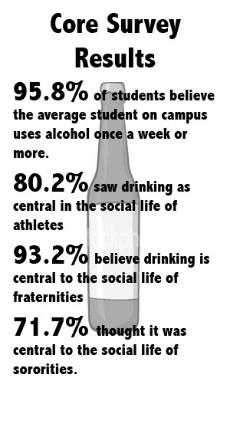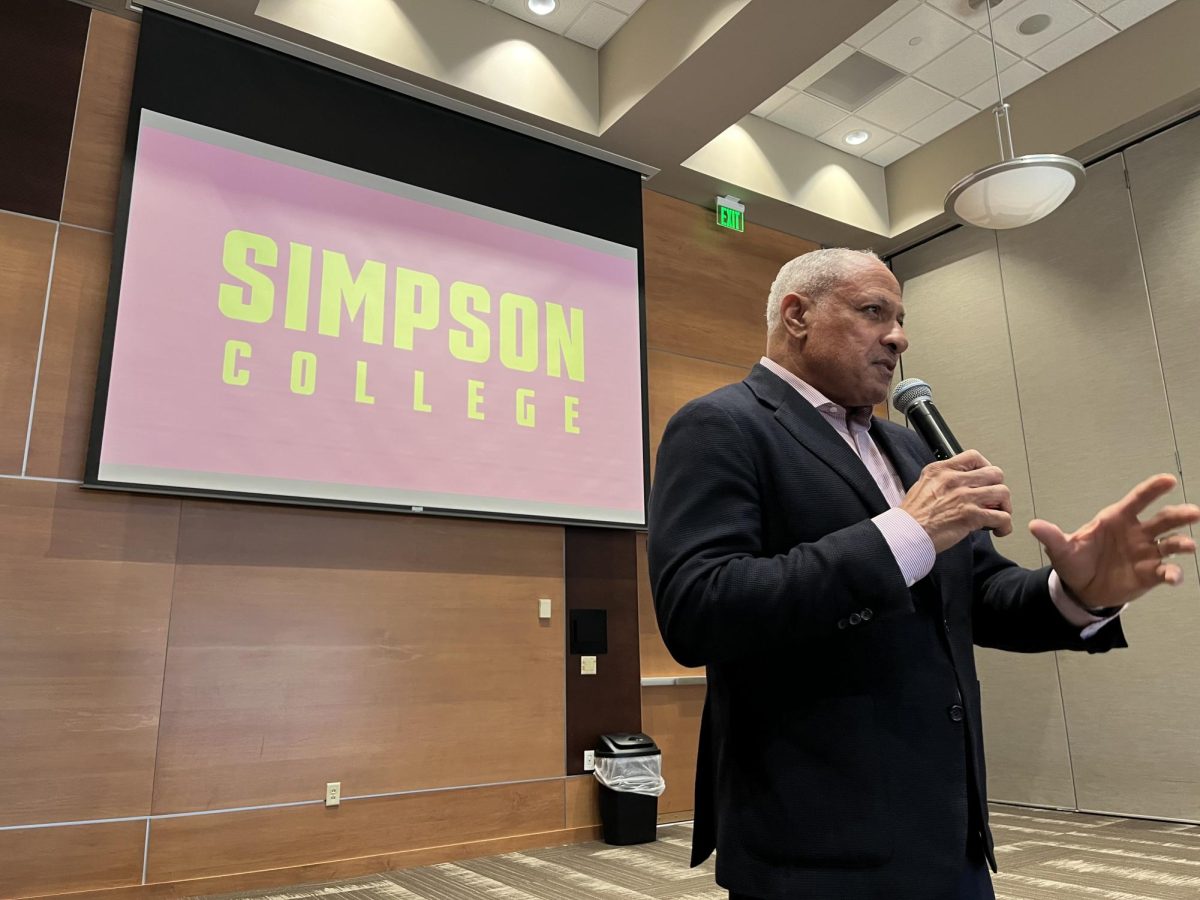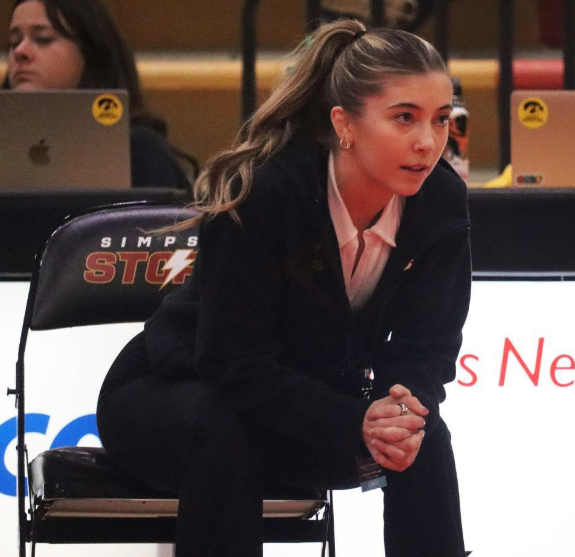Survey shows binge drinking down, still higher than national average

October 16, 2007
The results from a national drug and alcohol survey conducted last school year show that 56 percent of Simpson students binge drink.
That number is nine percent higher than the national average of 47 percent.
These results are part of the Core Alcohol and Drug survey, a national survey sponsored by the U.S. Department of Education. The survey was taken by more than 33,000 undergraduate students from around 50 colleges in the United States. Simpson has participated for more than five years.
Stephanie Krauth, associate dean of students, said the survey provides great information on students’ alcohol usage. The survey for the 2006 school year was taken by 195 students. Approximately 62 percent of the participants were women, which Krauth said somewhat fits the ratio of women to men on campus. There was also an even split on the number of students from each grade, with about 25 percent of students coming from each class.
“I was really pleased that the breakdown was so even. It was a really good snapshot of our campus population,” Krauth said.
The survey asked questions about each individual’s alcohol usage and their perception of alcohol usage by other students on campus.
Overall, 84.4 percent of participants had consumed alcohol in the past year, that’s about eight percent higher than the national average.
Krauth isn’t as worried about the number of students who drink, but about the amount of alcohol they consume. Within the previous two weeks, fifty-six percent of students reported binge drinking. A binge is defined as consuming five or more drinks in one sitting.
“We’ve been consistently over the national average,” Krauth said. “This can definitely be shown when you compare some of the consequences of that compared with our peers.”
The consequences that Krauth is referring to include a higher number of students who’d gotten nauseated or had memory loss. The percentage of students who had been in trouble with police or college authorities or who had driven a car while under the influence was also higher than the national average.
“All of our students are aware of the drinking age,” Krauth said. “It’s the consequences of drinking or the manner of drinking I’m concerned about. The whole concept of responsible drinking or responsible behavior can’t be reinforced enough.”
Senior Jason Rokke, a member of the Simpson security staff, agrees with Krauth.
“There is a problem with how and where students drink,” he said. “Some students can safely have a night where they have five or six beers, and pace themselves and be fine.”
In the survey, 43.8 percent of participants reported some form of public misconduct at least once during the past year as a result of drug or alcohol use.
Rokke said that this, coupled with the results of the campus security report for last year reflects a campus that is becoming less compliant. According to that report, there were 107 liquor law violations last school year.
“As a whole, Simpson doesn’t have a problem,” Rokke said. “There may be some students who do, but that’s just like any other campus. Those 107 infractions could have been the same people a number of times.”
The survey also indicated that 27.6 percent of students had driven a car while under the influence. Students walking to and from the bars on weekends increase the number of people on the streets.
Irresponsible drinking may be to blame for an almost doubling in the number who think campus is unsafe. The number of students who said they do not feel safe on campus rose from 3.8 percent in 2004 to 6.3 percent in 2006.
“It’s not a big number, but it has increased almost two-fold,” Rokke said. “To me, that’s a problem.”
Krauth said safety is an area that needs more follow up research.
“It would always be good to find out what are they finding unsafe so you know how to address it,” she said.
In addition to tracking each individual’s drinking habits, the survey also asked questions about individual perceptions of other students on campus.
The survey showed that 95.8 percent of students believe the average student on campus uses alcohol once a week or more.
It also reported that students find drinking as central in the social life of many campus groups, including athletes and the Greek community.
Of those who participated in the survey, 80.2 percent found drinking as central in the social life of athletes, 93.2 percent saw drinking as central to the social life of fraternities, and 71.7 percent thought it was central to the social life of sororities.
Sophomore basketball player Adrian Jackson found the results about athletes to be partially true. Jackson said that most athletes realize that drinking can slow them down during games and practice. During the season, student-athletes rarely have time to party.
“In the off season that’s pretty accurate,” Jackson said. “Once the season kicks in, some don’t do it anymore, but that doesn’t really apply to everyone.”
Senior Shyann Warrick doesn’t think the survey is an accurate portrayal of Greek life.
“I think the portrayals of those who are Greek are already skewed because of the reputation that things such as the media and movies give us,” Warrick said. “Greek life is not all partying. We do many other things, including philanthropy.”
Members of the campus fraternities seem to agree with Warrick.
“Drinking isn’t a central part of any organization,” Senior Zach Rus, president of Sigma Alpha Epsilon fraternity said. “I think they have this misconception because they only come to the houses on a Friday or Saturday night.”
Senior Trevor Sharp, president of Alpha Tau Omega fraternity, pointed out that drinking at fraternities is not allowed the first month of school to combat this idea.
“Men do not join fraternities for a place to drink,” Sharp said. “They join a fraternity because of the people who are already members.”
Overall, Krauth said the results were pretty similar to those of the previous two years.
“The fact that it didn’t deviate so much from the past several years gave me a sense that is was probably pretty right on,” Krauth said.
Krauth and her associates plan to use the survey to take action to educate students. Her office has joined forces with intramurals, health services, counseling services, residence life and security to spread the message of responsible drinking.




